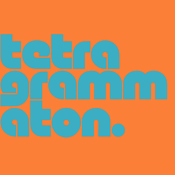25 episódios

Can America Continue Its Bull Run?
12/11/2025 | 34min
In this episode of Culture and Code, Rei and Tara explore one of the most consequential questions facing the tech industry: whether America can maintain its technological dominance in an era of geopolitical turbulence. Drawing from Tara's analysis of Nvidia's first-ever Washington D.C. summit, they examine historical patterns of technological revolution, the critical role of rare earth minerals in the AI race, and why the relationship between the U.S. and China will define the next 70 years of innovation. Through an anthropological lens spanning 130 years of economic history, they reveal why we may already be living in a "bridge period", an uncomfortable era of chaos that precedes the next great technological leap.Key TakeawaysThe Bridge Period HypothesisHistorical pattern: Major technological revolutions (35-40 years of growth) are separated by bridge periods (30-40 years) of intense social, political, and economic turbulenceFirst Industrial Revolution (1830-1870): European dominance, followed by U.S. agricultural economySecond Industrial Revolution (1870-1915): U.S. emergence through steam engines, railroads, and infrastructureBridge Period 1 (1915-1950): Two World Wars, extreme turbulence, but also massive technological invention (transistors, foundational science)Information Age Boom (1950-2020s): America's GDP per capita skyrocketed for 70 yearsBridge Period 2 (2020s-?): We are likely already in the next bridge period, characterized by AI innovation alongside geopolitical tensionThe Rare Earth RealityRare earth minerals aren't rare. They're just difficult and environmentally toxic to refineChina dominates global rare earth supply: 40% of reserves, 69% of mining, 90% of refiningU.S. position: Only 1.6% of reserves and less than 5% of refining capacityThe U.S. relinquished manufacturing starting in the 1980s, focusing on the "knowledge economy"China made a strategic sacrifice in the 1990s: reduced environmental regulations to monopolize rare earth refining over 30 yearsThis creates a fundamental asymmetry: U.S. owns the "top of the stack" (software, IP, cloud), China owns the "bottom" (manufacturing, materials, processing)The New Apollo MomentNvidia's D.C. summit marked a clear pivot: announcing AI factories for government, supercomputers, and quantum initiativesJensen Huang explicitly framed this as an "Apollo moment"—echoing the 1960s Space Race against the Soviet UnionUnlike the Cold War, today's competition is more complex: the U.S. needs China's manufacturing capabilitiesThe next 5-10 years will be "absolutely critical" in determining who leads for the next 70 yearsWe're witnessing not just a tech race, but a simultaneous trade war and battle for technological dominanceNavigating TurbulenceThe bridge period mindset: "wartime CEO" versus "peacetime CEO"For investors and technologists: stay nimble, understand where the world is heading, identify what technologies will be neededDespite the chaos, there's still work to be done and business to be builtHistorical lesson: the most uncomfortable periods often yield the greatest technological breakthroughsThe Cultural ParadoxTara's "underrated opinion": Americans and Chinese are surprisingly similar in personality- outgoing, with complementary humor and ways of beingThis stands in contrast to the structural similarities between Scandinavians and Japanese (formality, tradition, structure)The people-level compatibility suggests potential for collaboration despite political tensionsDecoupling is unlikely: interdependence is too deep, especially given...

The Battle for Your Browser
04/11/2025 | 25min
In this episode of Culture and Code, Rei and Tara explore the resurgence of the browser wars as AI companies race to control the interface between users and the digital world. From OpenAI's Atlas to Perplexity's Comet, they dissect why browsers suddenly matter again after 30 years of relative stagnation, what makes a browser "AI-native," and whether any of these new experiences are sticky enough to change daily habits. Through their own evolving usage patterns, they examine the tension between innovation and incumbency, and what this platform shift means for businesses waiting on the sidelines.Key Takeaways:The New Browser Wars Are HereMultiple AI-first browsers launched in recent months: OpenAI's Atlas, Perplexity's Comet, Browser Company's Dia (now acquired by Atlassian)First major browser innovation wave since the Netscape era 25 years agoBrowsers emerging as the critical gateway to the AI ecosystem, not just web pagesWhat Makes a Browser AI-NativeReasoning layer on top of search: ability to synthesize across thousands of sources (e.g., "find me the best hiking pants")Conversational interface replacing keyword searchPersonal memory banks that learn user preferences across sessionsIntegration of shopping, research, and generation in one interfaceThe Stickiness ProblemDespite impressive onboarding (Comet's "space age" experience), habit formation remains elusiveChrome's dominance (60-70% market share) is hard to disruptGoogle's AI mode in search brings users back by being "good enough" for generic queriesUsers still switching between tools: Perplexity for research, ChatGPT for generation, Chrome by defaultPlatform Implications for BusinessBusinesses waiting to see where the platform shift lands before restructuring digital experiencesPotential disruption to search advertising model (Google's primary revenue)OpenAI bringing commerce into chat (shop Etsy through ChatGPT window)The browser determines back-end and front-end infrastructure decisionsThe 30-Year Paradigm QuestionBrowser paradigm unchanged since the 1990sChatGPT created a new interaction model - can browsers evolve beyond their current form?This is an experience problem, not a tech problemStill an "open design space" with no clear winner-----About the HostsRei Inamoto: Creative entrepreneur and founding partner of I&CO, a global innovation firm with offices in New York, Tokyo, and Singapore. Follow Rei here: Rei's LinkedInNewsletter "The Intersection"Tara Tan: Managing partner of Strange Ventures, an early-stage firm investing in the future of computing. Follow Tara here:Tara's LinkedInNewsletter: The Strange ReviewConnect & SubscribeCulture and Code is a podcast about the biggest shifts in tech, business, and culture—before they go mainstream. New episodes on every Tuesday.

The Matcha Craze: How It Started
28/10/2025 | 25min
In this episode of Culture and Code, Rei and Tara explore the unexpected global rise of matcha through the lens of Cuzen Matcha, a San Francisco-based company bringing ceremonial Japanese tea to the masses. Through this case study, they examine how innovation happens when outsiders spot opportunities in traditional markets, the role of cultural fluidity in product adoption, and how businesses differentiate in hyper-commoditized industries. The conversation reveals how sometimes the best solutions come from solving a different problem than everyone else is focused on.Key TakeawaysThe Matcha Moment: From Ceremony to Fast FoodMatcha's transformation from specialized Japanese tea ceremony to global beverage trendThe role of "fast foodification" and "TikTokification" - Instagram-friendly aesthetics driving adoptionBlank Street Coffee: 90 locations in 5 years selling customized matcha (blueberry matcha, white chocolate matcha, rocky road matcha)Why plain matcha's bitterness needed Western adaptation through sugar and customizationSpotting Opportunity: The Cuzen Matcha Origin StoryFounder Eiji Sakata (ex-Suntory) noticed matcha in multiple NYC cafes in 2014-2015Convinced Suntory to explore US matcha market, leading to Stone Mill Matcha in San FranciscoEventually launched Kuzen Matcha: "The Nespresso of matcha" - automated home preparationThe power of being both insider (Japanese tea heritage) and outsider (American market perspective)Innovation Through Cultural CrossoverWhy coffee spread globally vs. matcha's singular cultural origin (limited Japanese diaspora)The advantage of bringing local heritage knowledge to global marketsJapanese engineering mindset + American consumer needs = breakthrough productSometimes you need distance from tradition to innovate within itDifferentiation in Commoditized MarketsTwo primary levers in competitive beverage markets: customization or priceLuckin Coffee's aggressive US expansion: $1.50-$2 coffee vs. Starbucks' $7-8Strategic timing: Chinese brand entering US during politically sensitive periodDistribution as strategy: multiple locations within blocks for accessibilityThe Innovation Dilemma InsightSometimes the opportunity is "right under your nose" but requires an outside perspectiveExample: Audi engineers solving a different problem led to unexpected breakthroughThe question: When stuck, can you solve a different problem to create improvement?Breaking entrenched systems requires "diversity of ideas" and openness-----About the HostsRei Inamoto: Creative entrepreneur and founding partner of I&CO, a global innovation firm with offices in New York, Tokyo, and Singapore. Follow Rei here: Rei's LinkedInNewsletter "The Intersection"Tara Tan: Managing partner of Strange Ventures, an early-stage firm investing in the future of computing. Follow Tara here:Tara's LinkedInNewsletter: The Strange ReviewConnect &...

The Sora Experiment: Low & High Bars for Creativity
21/10/2025 | 27min
Episode SummaryIn this episode of Culture and Code, hosts Rei Inamoto and Tara Tan dissect OpenAI's controversial launch of Sora, the AI video generation platform that became a viral sensation and a cautionary tale simultaneously. From clever growth hacking to international IP controversies, they explore what Sora's chaotic debut reveals about the future of content creation, the democratization of filmmaking, and the increasingly blurred line between human and AI-generated media.Key TakeawaysThe Growth Hack That Worked (Too Well?)Sora launched as a TikTok-style social app with invite-only accessHit 1 million downloads and topped app charts in its first two weeksStrategy: Created artificial scarcity while generating maximum buzzReality check: App store rating of barely 3/5 stars suggests retention issuesThe IP Controversy That Made International HeadlinesOpenAI notified Disney and major U.S. studios about opt-out rights for content trainingFailed to inform Japanese entertainment companies, causing diplomatic tensionJapanese Minister issued public statement criticizing the selective approachFlooded with Japanese IP content: Pokémon, Dragon Ball Z, and anime characters everywhereThe geopolitical implications: If the U.S. ignores IP law, why should China?Brain Rot, Slop, and the Frame Rate ProblemInitial content wave: "A dog shaped like a blueberry eating a blueberry"The frame rate issue: Similar sensation to early VR headaches and the Lumière Brothers' trainSora avatars everywhere: Sam Altman speaking Mandarin, driving through New YorkThe question: Is this a platform for creators or just another junk food content machine?When Real Craft Meets AI ToolsThe Visual Dome: An anonymous artist's stunning AI-generated civilization with five districts, unique bloodlines, and intricate historiesHigh craft indicators: Consistent lighting, depth of field, color palette, and art directionThe democratization paradox: The bar for content creation is simultaneously lower AND higherProfessional-looking content is now accessible to hundreds of millions, but truly distinctive work is harder than everThe Future of Content CreationThe entertainment demand is growing exponentially. Traditional production can't keep pacePrediction: Industrialization of AI content studios within 5 years (or sooner)The coexistence thesis: Room for both traditional and AI-generated content as the pie expands-----About the HostsRei Inamoto: Creative entrepreneur and founding partner of I&CO, a global innovation firm with offices in New York, Tokyo, and Singapore. Follow Rei here: Rei's LinkedInNewsletter "The Intersection"Tara Tan: Managing partner of Strange Ventures, an early-stage firm investing in the future of computing. Follow Tara here:Tara's LinkedInNewsletter: The Strange ReviewConnect & SubscribeCulture and Code is a podcast about the biggest shifts in tech, business, and culture—before they go mainstream. New episodes on every Tuesday.

Agentic Commerce and the Future of Shopping
14/10/2025 | 28min
In this episode of Culture and Code, Rei and Tara explore the seismic shift happening in online commerce through OpenAI's latest announcements. They dissect how ChatGPT is evolving into an operating system that could fundamentally reshape how we discover and buy products online. The conversation weaves between optimism about removing friction from commerce and concerns about creating "the world's most persistent sales assistant," while examining which companies stand to win or lose in this new landscape.Key TakeawaysChatGPT as Commerce OSOpenAI announced Apps SDK allowing vendors to embed shopping directly into ChatGPTOver 1 million sellers from Shopify and Etsy already integratedStripe partnership enables direct checkout through the chat interfaceDiscovery funnel, not website replacement—at least for nowThe Agentic Commerce StackAgent Kit: drag-and-drop interface for building AI agentsApps SDK: building blocks for the GPT store relaunchSora API: video generation within workflows (featuring impressive Mattel Hot Wheels demo)Context-based search replacing traditional keyword searchWinners and LosersUnder pressure: Google Ads, traditional payment rails (Visa/MasterCard), growth advertising companiesNew opportunities: Brands that master AI-native discovery and metadata optimizationCritical question: Will recommendations be personalized or auction-based like Google Ads?The Brand ParadoxBrand mindshare becomes more important, not less, in an AI-mediated worldTraditional advertising making a comeback—even AI companies use TV spots to reach mass marketExamples of principled growth: Patagonia's anti-consumption campaigns, Uniqlo's durability-over-trends philosophyThe Junk Law ProblemRisk of exponential growth in unwanted recommendations and proactive selling"Moore's Law for junk"—AI could create unprecedented volumes of commercial noiseNeed for new filtering mechanisms (the "burner email" equivalent for AI commerce)Contrarian TakesRei's Principle: If you're a brand, focus on what's truly valuable to customers—even if it means selling less stuff. Long-term brand value comes from meaningful customer relationships, not maximizing transactions.Tara's Observation: Despite having 700-800 million users, ChatGPT still needs traditional media to reach mainstream audiences. The tech-savvy market is already saturated.-----About the HostsRei Inamoto: Creative entrepreneur and founding partner of I&CO, a global innovation firm with offices in New York, Tokyo, and Singapore. Follow Rei here: Rei's LinkedInNewsletter "The Intersection"Tara Tan: Managing partner of Strange Ventures, an early-stage firm investing in the future of computing. Follow Tara here:Tara's LinkedInNewsletter: The Strange ReviewConnect & SubscribeCulture and Code is a podcast about the biggest shifts in tech, business, and culture—before...
Mais podcasts de Arte
Podcasts em tendência em Arte
Sobre Culture & Code
Ouça Culture & Code, vinte mil léguas e muitos outros podcasts de todo o mundo com o aplicativo o radio.net

Obtenha o aplicativo gratuito radio.net
- Guardar rádios e podcasts favoritos
- Transmissão via Wi-Fi ou Bluetooth
- Carplay & Android Audo compatìvel
- E ainda mais funções
Obtenha o aplicativo gratuito radio.net
- Guardar rádios e podcasts favoritos
- Transmissão via Wi-Fi ou Bluetooth
- Carplay & Android Audo compatìvel
- E ainda mais funções


Culture & Code
baixe o aplicativo,
ouça.


































